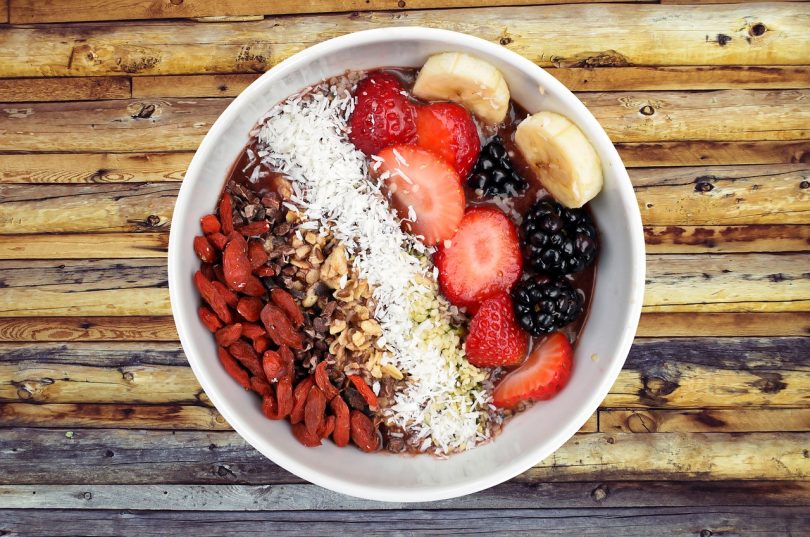The human digestive system is home to trillions of microbial cells that influence human physiology. The micro-organisms in your gut play an important role in maintaining the good health of your body.
They help digest your food, produce vitamins, regulate your immune system, and protect you from harmful pathogens. Scientists have even suggested that gut health may be directly linked to mental health.
Any imbalance in the flora can lead to problems like bloating, gas, constipation, diarrhea, inflammation, and even mood disorders.
Maintaining good gut health is the easiest way to maintain good overall health. You’ll find out 13 easy tips to follow for a healthier and happier gut.
13 Helpful Tips For A Healthier Gut
Here are some of the most helpful tips for a healthier gut:
1. Eat more fiber
To keep your gut healthy, eating more fiber is important. Fiber is like food for the good bacteria in your gut. Foods like fruits, vegetables, whole grains, nuts, seeds, and beans are rich in fiber.
When you eat fiber, it helps your gut bacteria make helpful substances that reduce inflammation and make your metabolism better. Fiber also adds bulk to your poop, which helps prevent constipation. Doctors suggest aiming for at least 25 grams of fiber every day.
2. Avoid antibiotics
Antibiotics are lifesaving drugs that kill harmful bacteria. But sometimes, antibiotics can also kill the good bacteria in the gut and make you more susceptible to infections, allergies, and stomach pain. Only take antibiotics when your doctor prescribes, and always finish the course as instructed. Improper use of antibiotics can also result in increased antibiotic resistance.
3. Take prebiotics
You can think of prebiotics as the food for the healthy microflora in your gut. They are probably the easiest way to have a healthy gut. Most prebiotics are easily tolerated and don’t have any harmful side effects. Prebiotic supplements like FiberMend are easily available on the internet and can easily be mixed with juices or smoothies, or even water for a healthy, nutritious drink anytime during the day. Prebiotics can help with digestive issues like irritable bowel syndrome, diarrhea, and ulcerative colitis. They can also boost your immunity and mood.
4. Take probiotics
Not to be confused with prebiotics, probiotics are actual live bacteria that can replenish your gut flora and restore its diversity and function. You can find probiotics in foods like yogurt, kefir, sauerkraut, kimchi, kombucha, and tempeh, or take them as supplements. Probiotics are useful, especially after a course of antibiotics that kills good and bad gut bacteria.
5. Eat fermented foods
These are foods that have been transformed by beneficial bacteria through a process called fermentation. Foods that are fermented contain probiotics as well as prebiotics with a healthy dosing of enzymes, vitamins, minerals, and antioxidants. Some examples of fermented foods are yogurt, kefir, sauerkraut, kimchi, kombucha, tempeh, miso, natto, and sourdough bread.
6. Limit sugar and processed foods
These are the perfect comfort food for everyone, including, unfortunately, the bad gut bacteria itself. Sugary and processed foods usually don’t have enough fiber and nutrients that are good for your gut. The harm starts from the mouth, with sugar causing plaque and cavities. Eating too much sugar and processed foods can also make you gain weight, get diabetes, and develop heart problems.
7. Drink plenty of water
Water is essential for your gut health because it helps flush out toxins and waste products from your body. It also hydrates the mucous membranes that line your digestive tract and protect you from infections. Water also keeps your stool soft and easy to pass, preventing constipation and hemorrhoids. Aim for at least eight glasses of water every day or more if you exercise or live in a hot climate.
8. Get enough sleep
Getting enough sleep can help your whole body, not just your gut. Sleep deprivation has been linked to gut problems. One reason can be that the body takes 12 hours to digest a healthy meal. If you are always awake and working, the body may not get the time to digest food properly.
9. Manage stress
Stress can hurt your gut health by altering your gut bacteria composition and function. It can also affect digestion by causing spasms, cramps, nausea, diarrhea, or constipation. Stress can also weaken your immune system, making you more prone to infections and inflammation. Try to practice relaxation techniques like meditation, yoga, and breathing exercises to manage stress.
10. Exercise
Even moderate amounts of exercise have been linked to good gut health. No need to hit the gym. Even half an hour of walking outside in the lovely sun can help boost your gut and give you that extra vitamin D. If you have a hectic schedule and can’t make the time, small habits can help make a positive change.
Taking the stairs instead of the elevator, walking to get something instead of asking someone else to get it for you, and even taking the longer route to walk somewhere can increase your daily movement.
11. Stop smoking
Smoking doesn’t just harm the lungs, but it can also harm the gut. Smoking can affect the gut microflora and change its composition by increasing the bad bacteria and decreasing the good ones. It can also disrupt the internal protective lining of the gut and the acid-base balance in the gut.
12. Chew your food
This may sound simple, but properly chewing food and breaking it into smaller and smaller pieces will make it easier for the gut bacteria to digest the food. When food takes long to digest, it can lead to gas, bloating, and sometimes even constipation.
13. See your doctor
If you are facing gut issues that are worsening or not improving, it would be worthwhile to get a general physician to look at what’s wrong. Proper medical care in time is the best gift you can give your body.
Conclusion
If you really want to enjoy what you eat and drink, you better take care of your gut health and ensure things are moving smoothly. Acidity and pain can ruin your day. We hope these tips will help you understand how to take care of your gut. Happy eating and healthy living!








